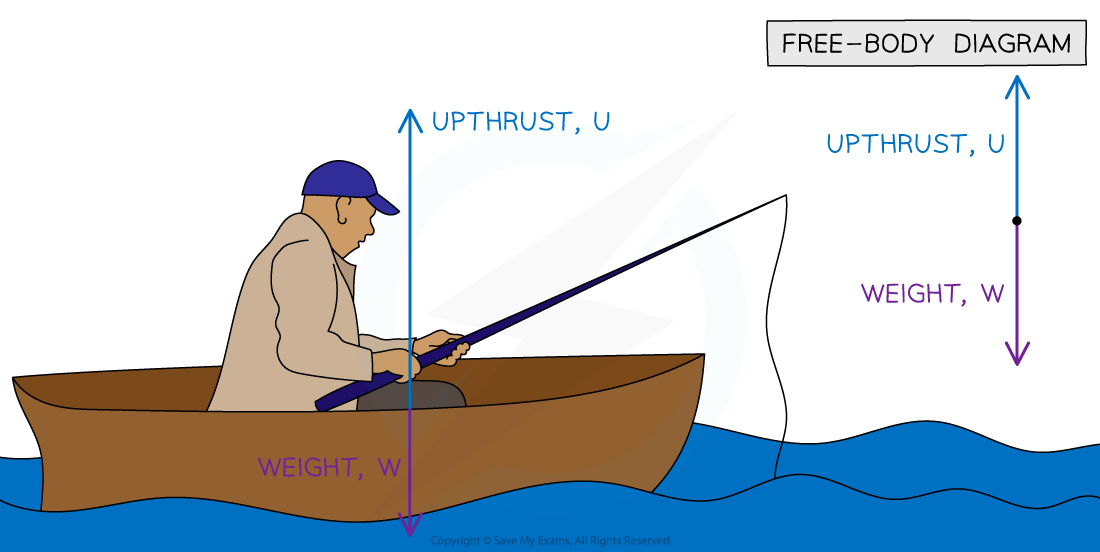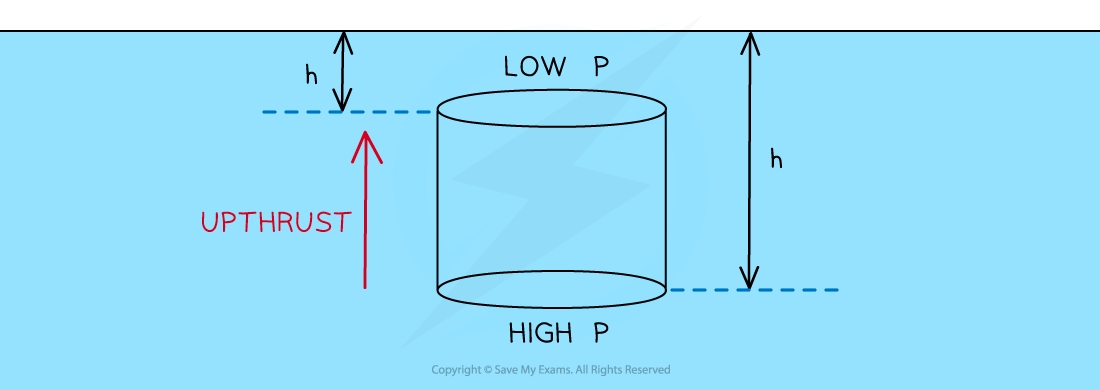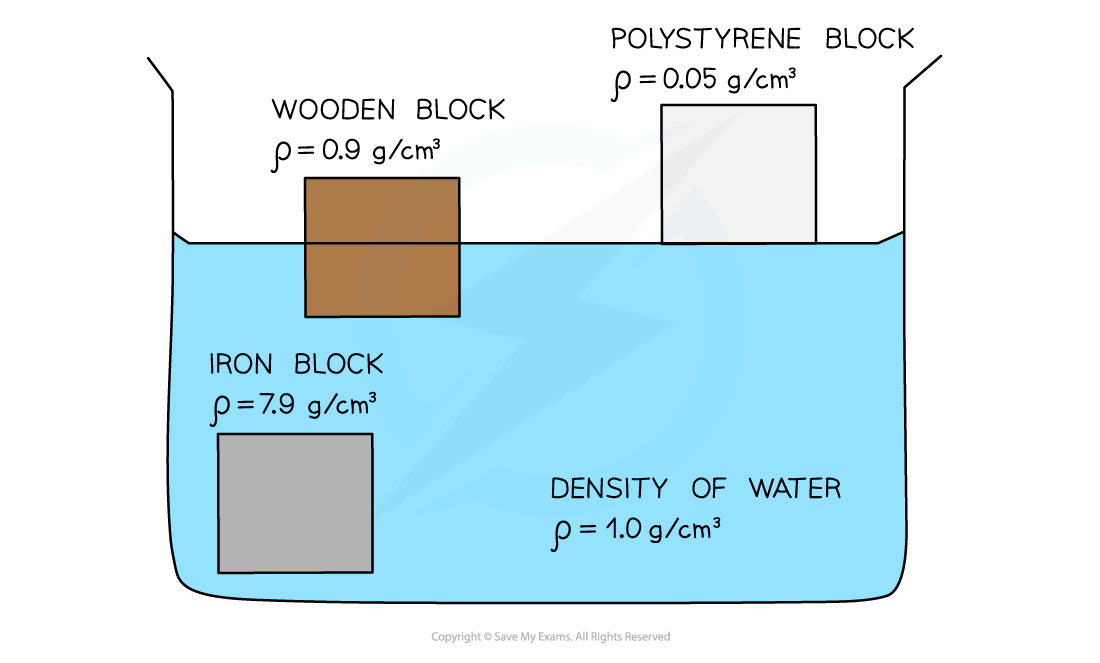Upthrust (AQA GCSE Physics) : Revision Note
Upthrust
Upthrust is a force that pushes upwards on an object submerged in a fluid i.e. liquids and gases
It is always in the opposite direction to the object's weight
This is why boats, and objects that are less dense than water, float
The size of the upthrust depends on the density of the fluid as well as the volume of fluid that is displaced (which is equal to the volume of the object)
The denser the liquid, the greater the upthrust it will exert on an object

Upthrust is in the opposite direction to the weight of the boat and the fisherman
Upthrust is due to the difference in pressure between the top and the bottom of the submerged object
A partially (or totally) submerged object experiences a greater pressure on the bottom surface than on the top surface
This is because the pressure p is proportional to the depth h of the object
The difference in pressure creates a resultant force upwards (upthrust)
Upthrust is why objects appear to weigh less when immersed in a liquid

Upthrust is due to the different pressure at the top and bottom of this cylinder
Floating & Sinking
Whether an object sinks or floats depends on the upthrust:
If the upthrust on an object is equal to (or greater than) the object’s weight, then the object will float
If the upthrust is smaller than the weight then the object will sink
The outcome also depends on the object's density:
If it has a density less than the density of the fluid it is immersed in, the object will float
If it has a density more than the density of the fluid it is immersed in, the object will sink
This is because if the density of the object is greater than the density of the fluid, the object can never displace enough fluid to create an upthrust that will hold its weight up (and therefore sinks)

Objects which are less dense than water will float and which are more dense will sink
A polystyrene block will float in water
This is because polystyrene has a density of 0.05 g/cm3 which is much less than the density of water (1.0 g/cm3)
A wooden block will be partially submerged but will still float
This is because the density of a wooden block (0.9 g/cm3) is slightly less than the density of water
An iron block will sink
This is because iron has a density (7.9 g/cm3) that is much higherthan water

You've read 0 of your 5 free revision notes this week
Sign up now. It’s free!
Did this page help you?
